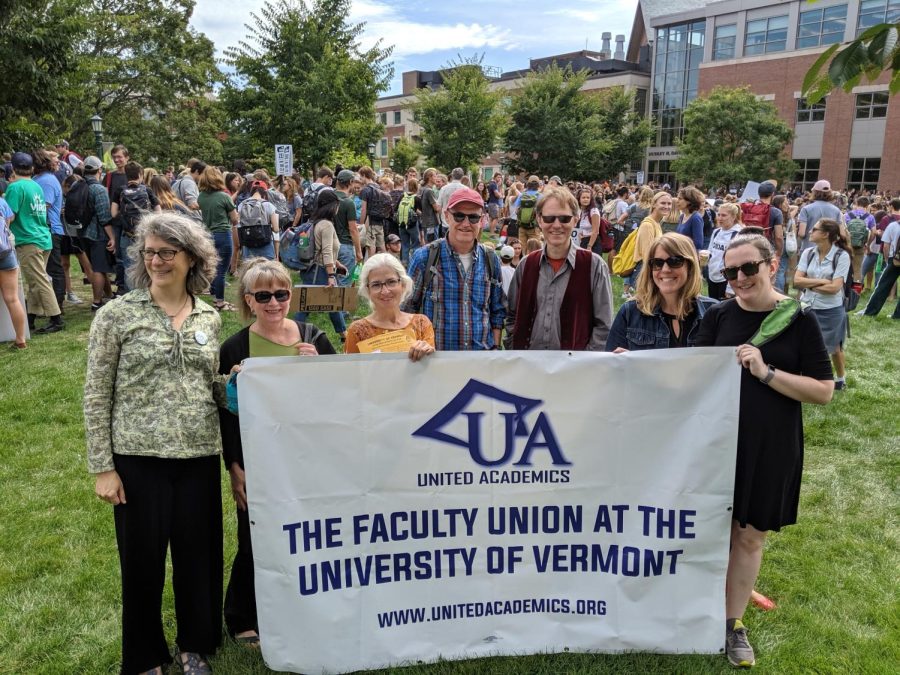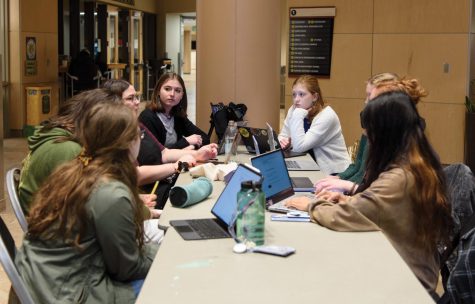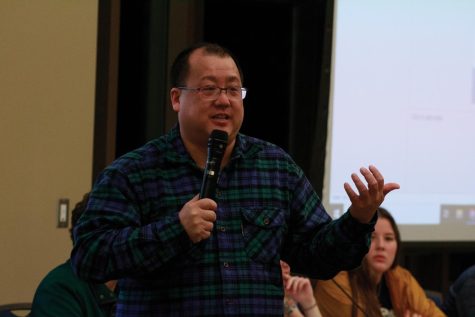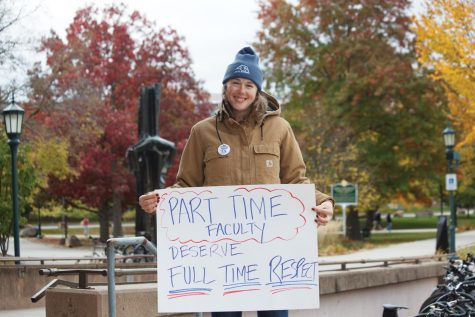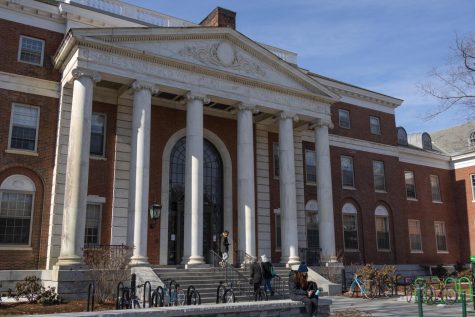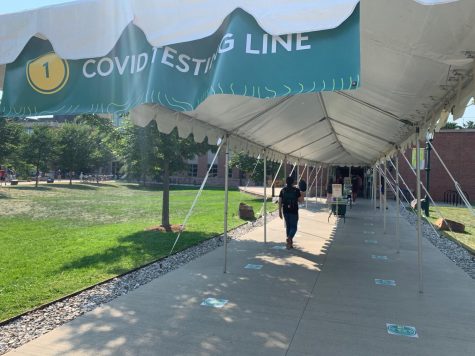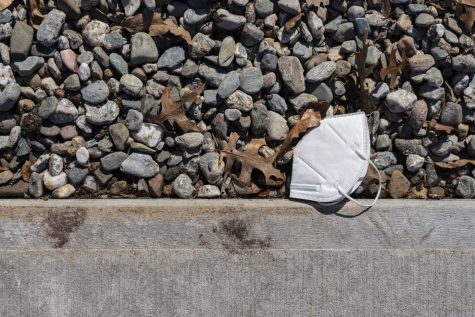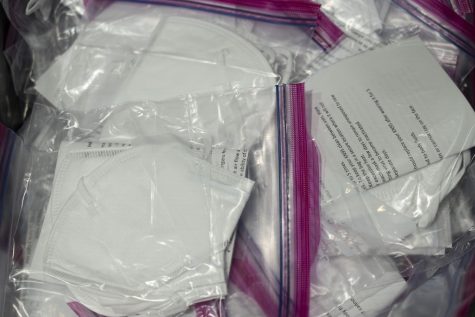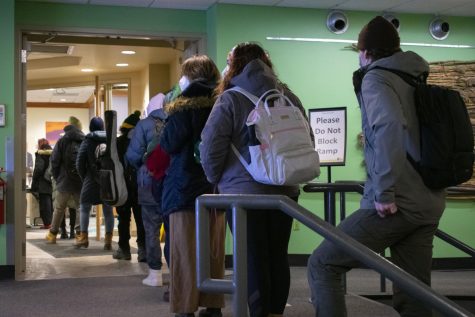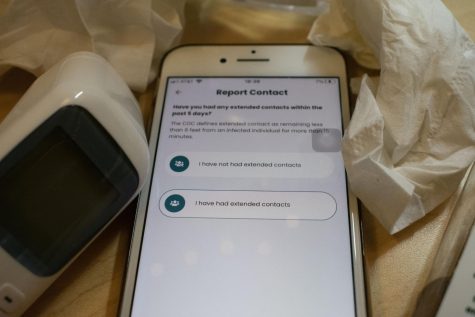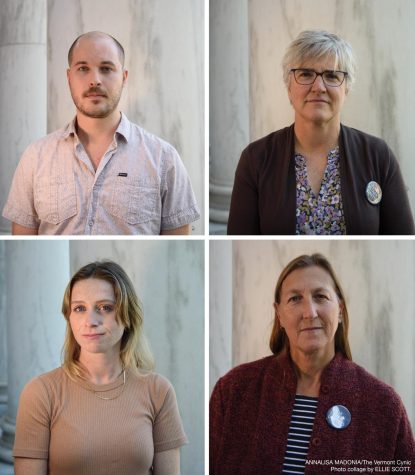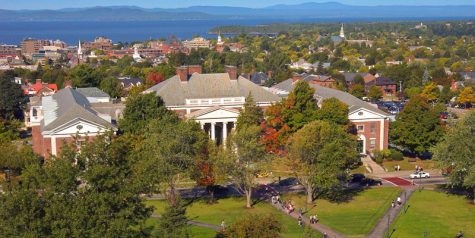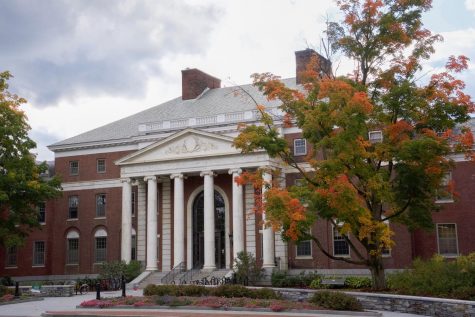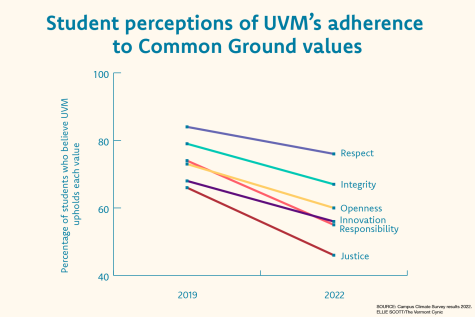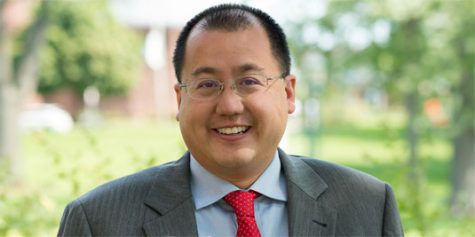UVM delayed mandating faculty COVID vaccinations until federally required, despite earlier faculty union demands
Members of the faculty union, United Academics, pose for a photo at the 2019 Climate March.
The faculty union’s requests for mandated COVID-19 vaccinations for faculty members went unheard for four months, until Dec. 6, when UVM put out a press release stating they had adopted the requirement for faculty to be vaccinated by Jan. 4, due to a Nov. 19 federal mandate.
The faculty union, United Academics, began making requests for a faculty vaccine requirement months ago, Executive Director Katlyn Morris said. UA additionally wants the process for course modality change to be more straightforward for faculty who may need to switch to remote on short notice.
“We approached the administration in August to request a [faculty] vaccine mandate, and we had conversations in August and September,” Morris said. “My understanding is the only reason they’re doing it now is that they’re required by the federal contractor [mandate].”
Of those in UA, some members operate on a contract committee, through which faculty can file grievances about University violations of the union contract, UA President Eleanor Miller said.
UA contract is renewed every four years, Miller said. The committee helps faculty negotiate solutions.
UA last settled their contract in May of 2021, and will begin the bargaining process again in three years, according to the University website.
An Executive Order signed into effect by President Joe Biden Sept. 9 requires federal employees to be vaccinated against COVID-19. UVM mandated faculty vaccinations in order to be in compliance with this order, according to the press release.
Faculty and staff members can still request to be exempt from the requirement for religious or medical reasons, according to the University website.
In addition to faculty vaccine mandates, UA wants the University to shift the course modality change process to be faster and more seamless for faculty who need to switch to remote learning, according to a Jan. 10 email from Morris.
“The process to change modalities currently is slow, may result in a denial even in circumstances that warrant going remote and can involve getting a doctor’s note and Americans with Disabilities Act processes for long-term changes,” Morris’ email stated.
The modality change process entails faculty members submitting a formal request to the Provost’s office via online form, from which they receive a formal response within a week. If the request is denied, reasons will be listed in the response, according to the University website.
Additionally, high enrollment combined with a hiring freeze in the College of Arts and Sciences resulted in classes becoming overcrowded and are no longer conducive to social distancing, according to Morris’ email.
“A lot of faculty who are older maybe would rather teach remotely, but that’s not a possibility,” Miller said. “You have to claim a disability and have a doctor say that you’re disabled. The other route is for short-term change in teaching modality.”
By the time the University responds to a request, the issue that warrants a professor’s need to transition temporarily to online instruction may already be resolved, Miller said.
“There was a lot of pushback to get tuition back, to get room and board back, and [UVM] doesn’t want to lose that money,” Morris said. “[Maintaining in-person instruction creates a] customer service model of keeping things going as normal so that they don’t lose any people.”
When UVM went fully remote during the COVID-19 lockdown, students issued a petition requesting refunds for tuition and housing as a response to the switch to online learning, according to a March 18, 2020 VTDigger article.
UVM maintains that continuing to carry out in-person operations is a priority this upcoming semester, according to a Jan. 11 email from Patricia Prelock, provost and senior vice president, and Gary Derr, vice president for operations and public safety.
Gary Derr, vice president for operations and public safety, and Patricia Prelock, provost and senior vice president, did not respond to the Cynic’s multiple requests for comment.


